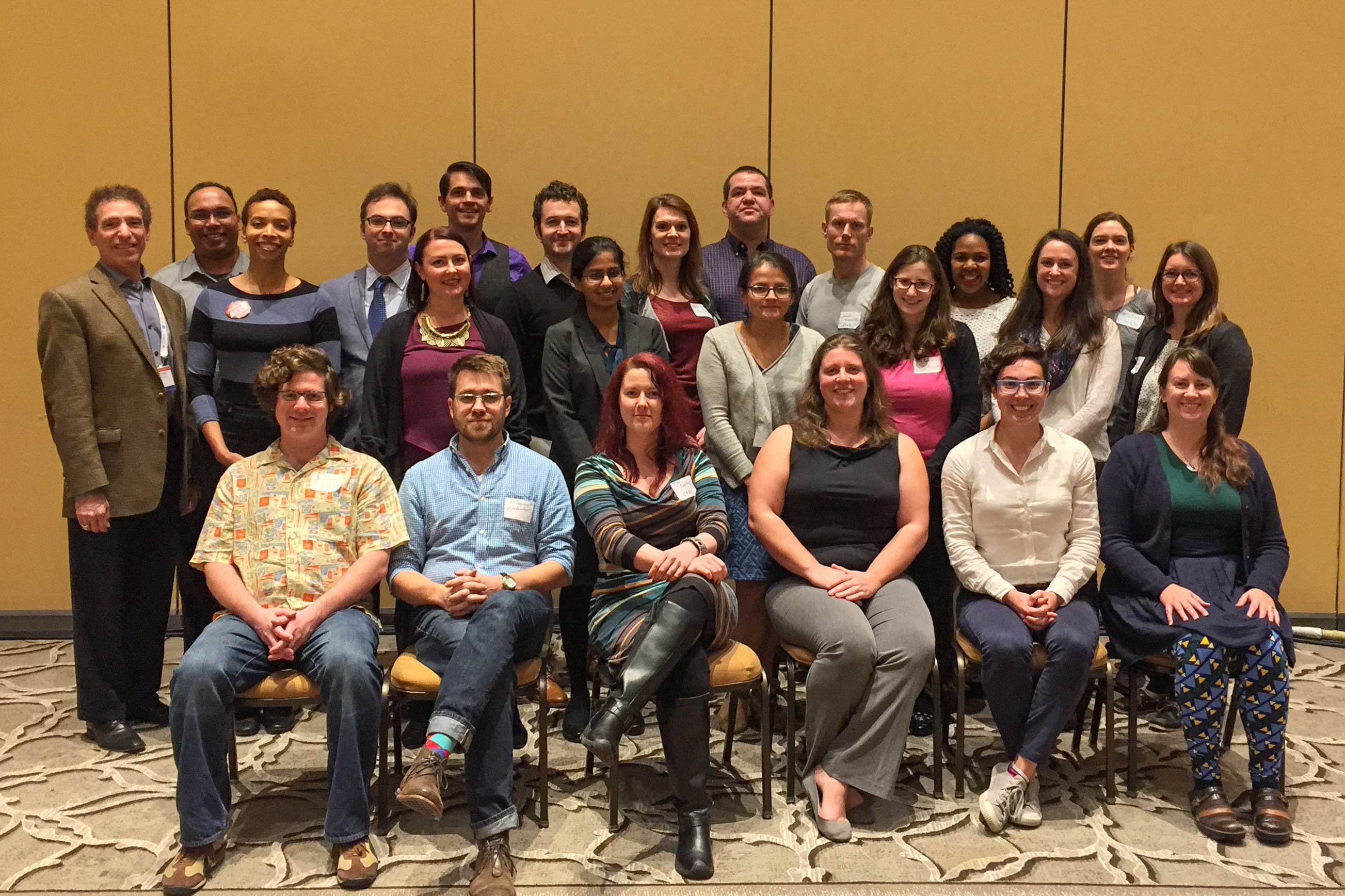This is the unofficial website of the NSF AAPF program, run by the fellows themselves. For official information about the fellowship, please go to the NSF program announcement.
2016 (Kissimmee, FL)

If you plan to attend, please register for the Symposium using the following link. The Symposium is open to all who are registered for the AAS meeting at no extra charge. Invited speakers and panelists do not need to register for the general AAS meeting. Current NSF Fellows are eligible for partial reimbursement.
Please direct any inquiries to the organizers:
Darcy Barron (darcy.barron@gmail.com)
Serge Dieterich (dieterich@carnegiescience.edu)
Devin Silva (devin.silvia@gmail.com)
Registration
https://docs.google.com/a/carnegiescience.edu/forms/d/16aDkjLAPN6O2qjCp9...
2016 Symposium Schedule
All events in room "Sun C" of the Gaylord Convention Center
Sunday, January 3, 2016
1:00 Welcoming Remarks (Conference organizers)
1:15 Talks by Fellows
Tom Essinger-Hileman, Darcy Barron, Rukmani Vijayaraghavan, Cameron Hummels
2:15 Discussion Panel 1: “The Postdoc to Faculty Transition in Astronomy”
Dr. Phillip Choi Pomona College
Dr. Rachel Kuzio de Naray Georgia State University
Dr. Marshall Perrin Space Telescope Science Institute
3:15 Coffee Break
4:00 Talks by Fellows
Jeffrey Silverman, Jedidah Isler, Aomawa Shields, Karen Knierman
5:00 Status Report on the AAPF and NSF-AST
Dr. Harshal Gupta, NSF-AAPF Program Officer
5:30 Program Conclusion
7:00 Symposium Dinner
Monday, January 4, 2016
9:00 Keynote Address
Dr. Lou Strolger, Space Telescope Science Institute
10:00 Coffee break and informal discussion
10:30 Talks by Fellows
Julia Kamenetzky, Ximena Fernandez
11:00 Discussion Panel 2: “Fostering a more inclusive astronomical community”
Dr. Carolyn Brinkworth National Center for Atmospheric Research
Dr. Jedidah Isler Vanderbilt University
Dr. Sarah Elizabeth Tuttle McDonald Observatory
12:00 Box lunch and general AAPF discussions (Fellows, alumni, NSF staff, and invitees)
2:30 Talks by Fellows
Devin Silvia, Robyn Sanderson and Ximena Fernandez
3:10 Coffee Break
3:30 Talks By Fellows
Kelly Denney, Daniel Grin, Angie Wolfgang
4:30 Discussion Panel 3: “The Forefront and Future Development of U.S. Astronomy”
Dr. Paul Butler Department of Terrestrial Magnetism, Carnegie Institution
Dr. Katrin Heitmann Argonne National Laboratory
Dr. Jason Kalirai Space Telescope Science Institute
5:45 Closing Remarks (Conference organizers)
Talks by Fellows, Detailed Schedule and Titles
Sunday, January 3, 2016
1:15pm: Tom Essinger-Hileman, “The Cosmology Large Angular Scale Survey”
1:30pm: Darcy Barron, “Cosmology from CMB Polarization with POLARBEAR and the Simons Array”
1:45pm: Rukmani Vijayaraghavan, “The Survival and Destruction of Galactic Gas in Cluster Environments”
2:00pm: Cameron Hummels, “Spectral Deception: Using Simulations to Correctly Interpret Absorption Spectra”
4:00pm: Jeffrey M. Silverman, “Active Astronomy Activities and Astronomy on Tap”
4:15pm: Jedidah Isler, “On the Vanguard: Engaging and Encouraging Emerging Women of Color in STEM”
4:30pm: Aomawa Shields, “Rising Stargirls: Using Theater, Writing, and Visual Art to Explore Astronomy and
Astrobiology with Middle School Girls of Color”
4:45pm: Karen Knierman, “Multicultural Milky Way: Planetarium Partnerships with Under-served Arizonans”
Monday, January 4, 2016
10:30am: Julia Kamenetzky, “Bringing Radio Interferometry to the Introductory Astronomy Classroom”
10:45am: Ximena Fernandez, “Highest Redshift Neutral Hydrogen Image in Emission: A CHILES Detection of a
Starbursting Galaxy”
2:30pm: Devin Silvia, TBA
2:45pm: Robyn Sanderson & Ximena Fernandez, “Building Better Bridges: An Evaluation of the Columbia University
Bridge to the Ph.D. Program”
3:30pm: Kelly Denney, "OSU MAIL Boxes and Telescope Lending Library"
3:45pm: Daniel Grin, “Astronomy outreach to older adults in Chicago”
4:00pm: Angie Wolfgang, “A Probabilistic Mass-Radius Relationship for Sub-Neptune-Sized Planets: Implications for
Missions Post-Kepler”